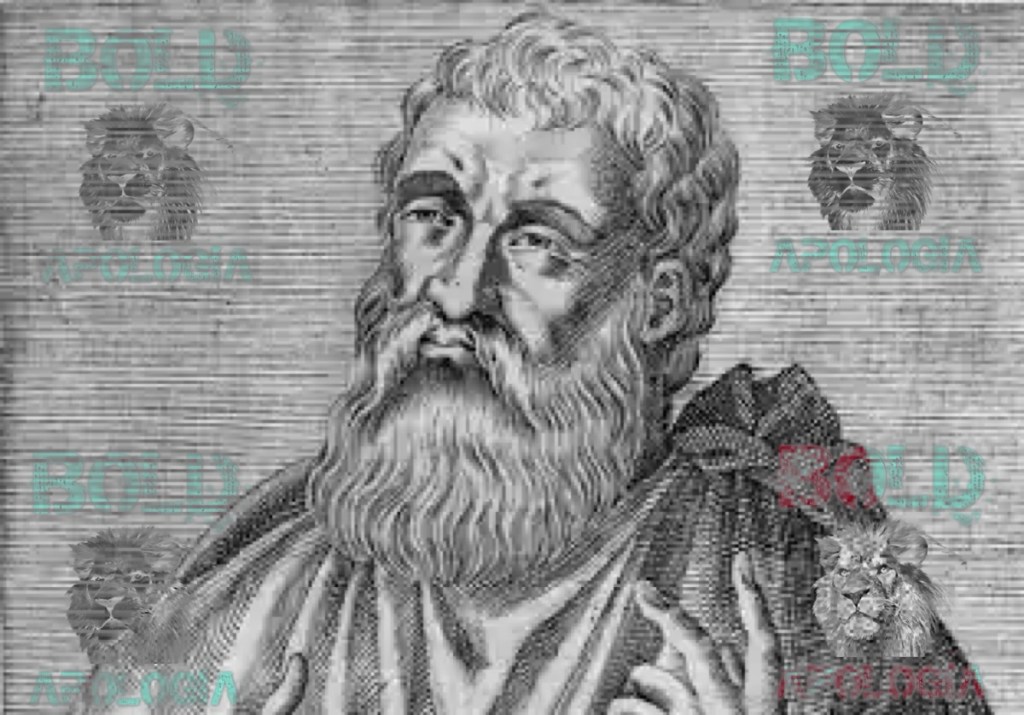
“For the prophetic gifts remain with us, even to the present time. And hence you ought to understand [that the gifts] formerly among your nation have been transferred to us.”(Justin Martyr, “First Apology”, Chapter 39)
Introduction
In the rich tapestry of Christian theology, the debate over the continuation of spiritual gifts has been a persisting discourse. Two primary viewpoints anchor this debate: cessationism, which posits that certain miraculous gifts of the Holy Spirit ceased with the Apostolic Age, and continuationism, advocating for the ongoing operation of these gifts in the Church. The teachings of Justin Martyr, a pivotal second-century Christian apologist, offer profound insights in favor of continuationism.
Understanding the Cessationist Perspective
Cessationists assert that spiritual gifts such as prophecy, healing, and speaking in tongues were confined to the early Church era. Their argument hinges on the belief that these gifts served a foundational purpose for the nascent Church and ceased with the conclusion of the apostolic era and the canonization of the New Testament. Scriptural interpretations, notably from 1 Corinthians 13:8-10, form the basis of this viewpoint, suggesting an end to these extraordinary gifts. As you will see, Justin Martyr provides at least some feedback that is particularly injurious to this perspective.
Justin Martyr’s Contentions
In apparent contrast, Justin Martyr’s writings illuminate the presence and vitality of at least some of these spiritual gifts in the Christian community well beyond the Apostolic Age. His works, notably the “First Apology” and “Second Apology,” not only defend Christian doctrine against Greco-Roman critiques but also affirm the continuation of spiritual gifts.
- Prophecy: Strongly affirmed is the gift of prophecy. Justin Martyr saw prophecy as an active gift, bridging the Old Testament prophets and the Christian era. He perceived it as an ongoing validation of Christian truth, essential for the Church’s spiritual dynamism. In fact, Justin Martyr explicitly acknowledges the continuation of prophecy in the Church. He states: “For the prophetic gifts remain with us, even to the present time” (“First Apology,” Chapter 39). This statement directly supports the idea that the gift of prophecy was active beyond the apostolic age.
- Healing and Tongues: In examining Justin Martyr’s writings, it’s clear that while he broadly acknowledges the miraculous and divine power at work in the Christian community, there are no direct quotes explicitly affirming specific spiritual gifts like healing and speaking in tongues. Justin references the extraordinary acts that mirror the compassionate deeds of Jesus and the Apostles, which could imply a continuation of spiritual activities akin to healing. Similarly, while he does not specifically mention speaking in tongues, the overall portrayal of a spiritually empowered community in his works might suggest its presence. However, any assertion that Justin Martyr affirmed these particular gifts is speculative. His writings primarily offer a general affirmation of the Holy Spirit’s activity, not detailed discussions of individual gifts as understood in later Christian theology. Therefore, claims about Justin’s specific views on healing and speaking in tongues should be approached with caution, recognizing them as extrapolations rather than definitive conclusions; unlike the gift of prophecy, which he explicitly affirms.
- Exorcism: Exorcism, though not always categorized as a spiritual gift, is still a significant aspect to consider. Justin Martyr acknowledged the power to exorcise demons in Christ’s name as an active manifestation of divine authority. He regarded this ability as a compelling demonstration of Christ’s supremacy over pagan beliefs. In his “Second Apology,” Justin Martyr highlights the power Christians possess over demons: “And now you can learn from what is under your own observation that deliverance from the spirits of wickedness was and is performed by those who adhere to the teachings of Christ” (Chapter 6). This reference suggests the ongoing practice and effectiveness of exorcism, akin to what is observed in the Charismatic movement today, often referred to as “Deliverance Ministry.” Overall, Justin Martyr’s writings seem to support the idea that Christians are endowed with power from on high to carry out God’s work on earth.
The Problematic Nature of Cessationism in Light of Justin Martyr
Justin Martyr’s testimonies pose a significant challenge to the cessationist perspective, as they suggest the continuation of spiritual gifts beyond the Apostolic Age. His accounts indicate that these gifts persisted, playing an integral role in the life and mission of the Church. He utilized these gifts in his apologetic work and evangelism, underscoring their lasting utility, which extended beyond internal church activities to serve as tools for defending and propagating the faith. Notably, his explicit acknowledgment of the ongoing nature of the gift of prophecy counters a common cessationist argument: the belief that the completion of the scriptural canon has rendered prophecy obsolete. Justin’s stance on the enduring relevance of prophecy directly confronts this cessationist view, underlining the sustained presence and importance of spiritual gifts in the Church.
Conclusion
Upon reflecting on Justin Martyr’s teachings and experiences, a compelling case unfolds in favor of the continuationist perspective. His observations advocate for an expansive and enduring interpretation of spiritual gifts, challenging the idea that these gifts were confined to the Apostolic Age. In the context of contemporary Christianity, Justin’s insights provide not only a historical foundation affirming the perpetual operation of spiritual gifts (especially prophecy) but also encourage modern believers to actively engage with the Holy Spirit’s work in their personal spiritual journeys and communal life. Thus, Justin Martyr’s legacy becomes a pivotal element in the discourse advocating for the ongoing presence and significance of spiritual gifts in the Christian faith. This enduring legacy enriches our understanding of the dynamic and living nature of these gifts, bridging the past with the present and future of Christian practice and belief.

Bibliography
- Justin Martyr.
- “First Apology.” In Ante-Nicene Fathers, Vol. 1, edited by Alexander Roberts and James Donaldson. Buffalo, NY: Christian Literature Publishing Co., 1885. Reprint, Peabody, MA: Hendrickson Publishers, 1994.
- “Second Apology.” In Ante-Nicene Fathers, Vol. 1, edited by Alexander Roberts and James Donaldson. Buffalo, NY: Christian Literature Publishing Co., 1885. Reprint, Peabody, MA: Hendrickson Publishers, 1994.
- These works provide direct insights into Justin Martyr’s arguments and theological positions, including his perspectives on spiritual gifts.
- Wayne Grudem.
- “Systematic Theology: An Introduction to Biblical Doctrine.” Grand Rapids, MI: Zondervan, 1994.
- This text offers a comprehensive overview of Christian theology, including discussions on spiritual gifts and the Holy Spirit.
- Craig S. Keener.
- “Miracles: The Credibility of the New Testament Accounts.” Baker Academic, 2011.
- Keener’s work includes historical analysis of miracles in the New Testament and discussions on their continuity.
- Sam Storms.
- “The Beginner’s Guide to Spiritual Gifts.” Bethany House Publishers, 2013.
- Provides a modern perspective on continuationism and the operation of spiritual gifts today.
- Henry Chadwick.
- “The Early Church.” The Penguin History of the Church, vol. 1. London: Penguin Books, 1993.
- Offers historical context for early Christian writers like Justin Martyr.
- Jon Ruthven.
- “On the Cessation of the Charismata: The Protestant Polemic on Post-Biblical Miracles.” Sheffield Academic Press, 1993.
- Ruthven’s book critically examines the historical and theological basis of the cessationist position.
- Hank Hanegraaff.
- “Counterfeit Revival: Looking For God in All the Wrong Places.” Thomas Nelson, 2001.
- Provides insights into the cessationist argument and critiques of contemporary revivalist movements.
- 1 Corinthians 13:8-10.
- A key scriptural passage often cited in discussions of spiritual gifts and their duration.

